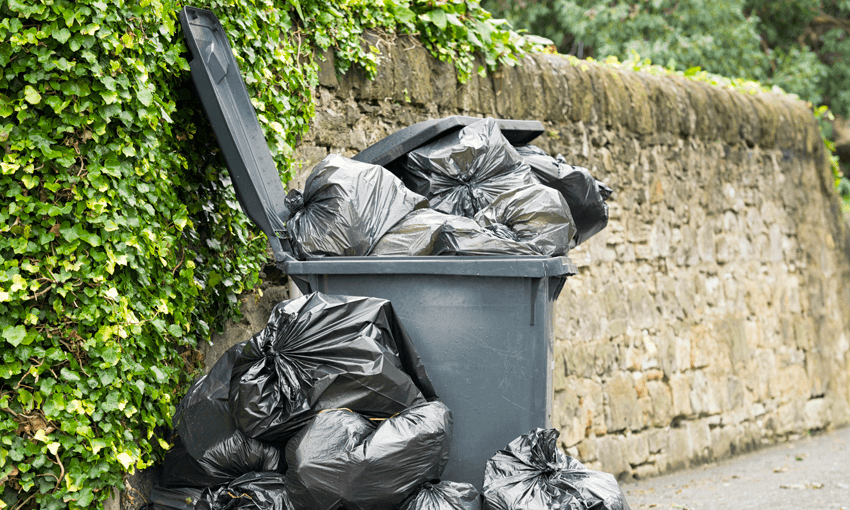We’re likely to see a big decrease in the amount of waste produced in New Zealand in the coming months, but the industry is facing a complex situation in responding to Covid-19. Alex Braae reports.
While rubbish might not occupy the thoughts of many during a pandemic, plans are currently being made to keep the essential service operating during whatever comes next. That’s particularly the case during a public health emergency because uncollected rubbish being left to fester can contribute to diseases being spread, putting further pressure on the health system.
Wayne Plummer, chair of Wasteminz, said the industry is in “uncharted territory” in the same way that every other business is right now. “Pandemic planning and business continuity planning is all part of our existing infrastructure, so we’re playing things under the guidance of the Ministry of Health, and making sure we have contingency plans in place for all of our activities.”
“The waste industry is classified as an essential service, so it’s absolutely imperative that the industry and the sector is able to keep working during these times as well,” added Plummer.
There is also an awareness in the industry that plans might have to change at very short notice. Waste management companies who were contacted stressed that pandemics have always been a part of their wider contingency planning.
While there will be some pain points – such as the recent example of blocked pipes from people flushing wet wipes down the toilet – the overall volume of rubbish is almost certainly going to decrease in the coming weeks. But it’s a complex situation for the industry to manage.
Associate environment minister Eugenie Sage, who is responsible for waste management, said waste production tends to decrease during an economic downturn. “Any short-term increase in medical-related supplies and packaging is likely to be more than balanced out by decreases in waste from other parts of New Zealand’s economy.”
She added that the waste we are likely to see an increase in – medical-related supplies and packaging – won’t weigh much so it won’t necessarily translate to a high tonnage.
Plummer confirmed that he knew of one company providing waste management services in the health sector that had experienced an increase in volume over the past month.
Part of the reason for the overall decrease in waste volumes is the dramatic reduction in tourist numbers after new rules were put in place requiring self-isolation for anyone coming into the country. That will likely cause an effective drop in the population of people in the country at any one time, with more than three million visitors setting foot in New Zealand during a normal year.
Plummer said that there has already been a small decrease in volumes seen, particularly from both the hospitality and tourism sectors and with the end of cruise ship arrivals. “But I’m anticipating, as I’m sure the industry is, that these volumes are going to decrease significantly. You get a lot of waste out of the airlines, and certainly off the cruise ships – that’s quarantined waste that needs to go for special treatment.”
There will also be a close eye kept on the construction industry, which is one of the largest single producers of waste for disposal. At the moment there is plenty of uncertainty about what will happen to building activity levels amid both the requirements of dealing with a pandemic and the expected economic downturn. “Through the GFC [in 2008-2009] things did drop off a little bit and a lot of that was construction related. So that’s the other piece that’s very uncertain at the moment. Obviously, at the moment there’s a bit of a boom in the construction sector,” said Plummer.
There may also be an increase in household waste produced over the coming weeks, with many thousands of people working from home or self-isolating. Plummer said household bins are likely to “take a hammering” as a result.
Minister Sage said that while public health remains the top priority for everyone, correct disposal of household waste is still vitally important. “People should always dispose of waste responsibly and wash their hands – wet wipes and hygienic wipes should be put in the rubbish and not flushed under any circumstances.”



